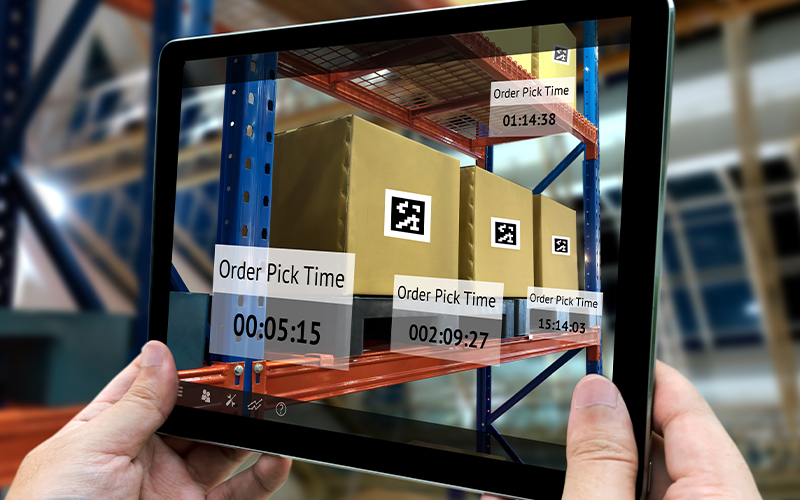Businesses have not yet fully realised the promise artificial intelligence holds for the industry, although it is on the fast track to ubiquitous adoption. Particularly AI in procurement and supply chain management has a long way to go. Seasoned experts and industry veterans agree on the far-reaching impact of AI on improving and advancing procurement processes.
Generative AI-based supply chain management and procurement is the future of the industry. Organisations must learn to wield it as a collaborative tool rather than shunning it as a disruptive force.
What does AI in procurement and supply chain entail?
Because of its ability to learn and apply its learnings, AI solves complex problems with great efficiency and consistency. AI provides a feasible gateway to automate processes allowing a richer collection and assimilation of data and insights.
Using AI in procurement and supply chain supports human operatives by automating tedious tasks and freeing up resources for utilisation where impact is most needed. Let’s look at a few ways AI-based supply chain management and procurement is impacting organisations across the world:
Intelligent spend analysis
Unseen spend patterns and cost-saving possibilities can be identified by automating data collection and analysis through AI in supply chain management. AI applications break down historical purchase data, promoting improved negotiations and data-driven vendor selection.
Predictive procurement
AI in procurement enables predictive analytics and demand forecasting. Getting a quantifiable read into future market trends can inform pre-emptive sourcing decisions and avert potential supply disruptions. This is why AI-based supply chain management tools have become a strategic imperative to maintain agility and resilience, especially when the global scenario goes topsy-turvy.
Dependable risk management
AI gives businesses sight. Effective risk management requires continuous monitoring of market conditions, contract lifecycles, and supplier performance. Organisations benefit from employing automated systems that provide a 360° view of potential risks like contract breaches, non-compliance, and supply disruptions. AI-driven risk management tools play a crucial role in securing the interests of firms that engage in procurement outsourcing.
A case for AI in procurement and supply chain
There are hundreds of potential use cases that justify the adoption of artificial intelligence in supply chain management and procurement operations:
Informed decision making
Actionable insights and timely analytics are the foundation on which informed decisions are made, and AI provides unhindered access to both.
Operational efficiency
AI tools alleviate the burden of performing repetitive manual processes and expedite the procurement process to reduce operational redundancies.
Leveraging AI-powered analytics can help procurement teams gain clear and actionable insights into vendor performance and stability. Dashboards and other tools allow more productive vendor management and relationship management.
Gateway to automation
AI tools, when integrated with robotics and automation systems, can improve warehousing and logistics efficiency by supplementing existing labour in manual tasks like packing, labelling, sorting, etc.
AI is revolutionising the supply chain industry, and each of its applications aids bottom-line growth. Adopting AI in procurement isn’t a simple technological upgrade but a strategic approach to improve operational efficiencies, resource management, and cost-saving.
To integrate AI in procurement, start by creating a framework that covers all aspects:
- Identify and document existing pain points in the process where AI technology can add value.
- Collate as much procurement-related data as possible. Include data that may be low-quality and unorganised.
- Form a core team comprising IT and procurement experts that will spearhead the implementation process and bring diverse perspectives to the process.
- Choose an appropriate AI-based solution that addresses the pain points identified. Consider factors like scalability, integration with existing systems, usability, post-implementation support, etc.
- Once selected, it’s crucial to run a pilot program that measures the effectiveness, function, output and responsiveness of the tool.
- Collect as much feedback as possible to improve and iterate the AI process. The teething phase involves consistent learning, both for the system and for human resources involved in making the implantation a success.
AI-based supply chain management and procurement is a fundamental transition in the way companies manage their operation and resources. With a rise in the number of global disruptions, AI will play a pivotal role in predictive analytics, building resilient supply chains, and securing the future interests of logistics and procurement companies.
How can Infosys BPM help with AI in procurement?
AI-based supply chain management solutions by Infosys BPM are a single-stop pathway for streamlining and optimising sourcing and procurement processes. By combining AI with best-in-class sourcing and procurement outsourcing solutions, procurement outsourcing from Infosys BPM helps you achieve faster, data-driven decision-making, optimise costs and gain a significant competitive advantage.








